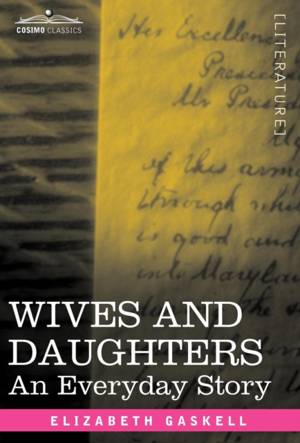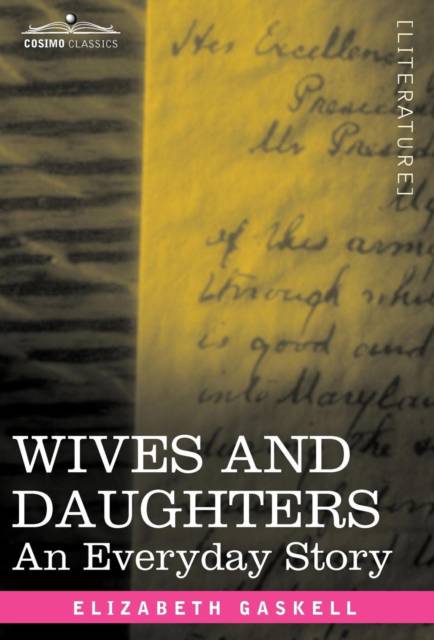
- Afhalen na 1 uur in een winkel met voorraad
- Gratis thuislevering in België vanaf € 30
- Ruim aanbod met 7 miljoen producten
- Afhalen na 1 uur in een winkel met voorraad
- Gratis thuislevering in België vanaf € 30
- Ruim aanbod met 7 miljoen producten
Zoeken
€ 62,45
+ 124 punten
Uitvoering
Omschrijving
"My dear! why don't you ask him to dinner here? A little quiet dinner, you know. Cook is quite up to it; and we would all of us wear blacks and lilacs; he couldn't consider that as gaiety." Mr. Gibson took no more notice of these suggestions than by shaking his head. He had grown accustomed to his wife by this time, and regarded silence on his own part as a great preservative against long inconsequential arguments. But every time that Mrs. Gibson was struck by Cynthia's beauty, she thought it more and more advisable that Mr. Osbourne Hamley should be cheered up by a quiet little dinner-party. As yet no one but the ladies of Hollingford and Mr. Ashton, the vicar-that hopeless and impracticable old bachelor-had seen Cynthia; and what was the good of having a lovely daughter, if there were none but old women to admire her? -from Chapter XIX: "Cynthia's Arrival" As interest in 19th-century English literature by women has been reinvigorated by a resurgence in popularity of the works of Jane Austen, readers are rediscovering a writer whose fiction, once widely beloved, fell by the wayside. British novelist ELIZABETH CLEGHORN GASKELL (1810-1865)-whose books were sometimes initially credited to, simply, "Mrs. Gaskell"-is now recognized as having created some of the most complex and broadminded depictions of women in the literature of the age, and is today justly celebrated for her precocious use of the regional dialect and slang of England's industrial North. Wives and Daughters, Gaskell's sixth and final novel, was originally serialized in Cornhill Magazine between 1864 and 1866, and was not quite finished at the time of the author's death. The story, of shy Molly Gibson and her far more spirited stepsister, Cynthia, and the men who vie for their hands, remains incomplete, but this edition features notes from the Cornhill editor regarding Gaskell's plans for the tale's ending. Friend and literary companion to such figures as Charles Dickens and Charlotte Brontë-the latter of whom Gaskell wrote an applauded 1857 biography-Gaskell is today being restored to her rightful place alongside her. This delightful replica volume is an excellent opportunity for 21st-century fans of British literature to embrace one of its most unjustly forgotten authors.
Specificaties
Betrokkenen
- Auteur(s):
- Uitgeverij:
Inhoud
- Aantal bladzijden:
- 640
- Taal:
- Engels
Eigenschappen
- Productcode (EAN):
- 9781605205571
- Verschijningsdatum:
- 1/12/2008
- Uitvoering:
- Hardcover
- Formaat:
- Genaaid
- Afmetingen:
- 140 mm x 216 mm
- Gewicht:
- 943 g

Alleen bij Standaard Boekhandel
+ 124 punten op je klantenkaart van Standaard Boekhandel
Beoordelingen
We publiceren alleen reviews die voldoen aan de voorwaarden voor reviews. Bekijk onze voorwaarden voor reviews.








